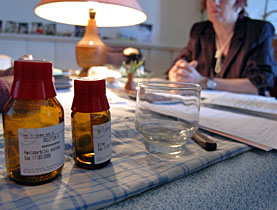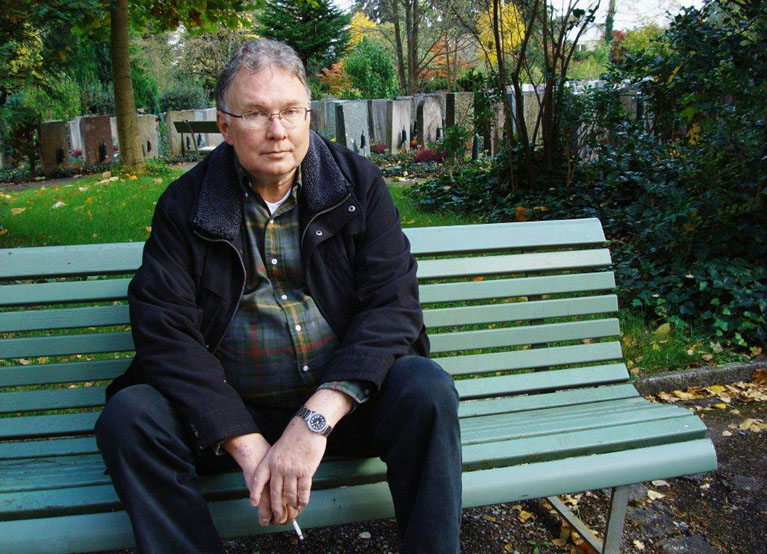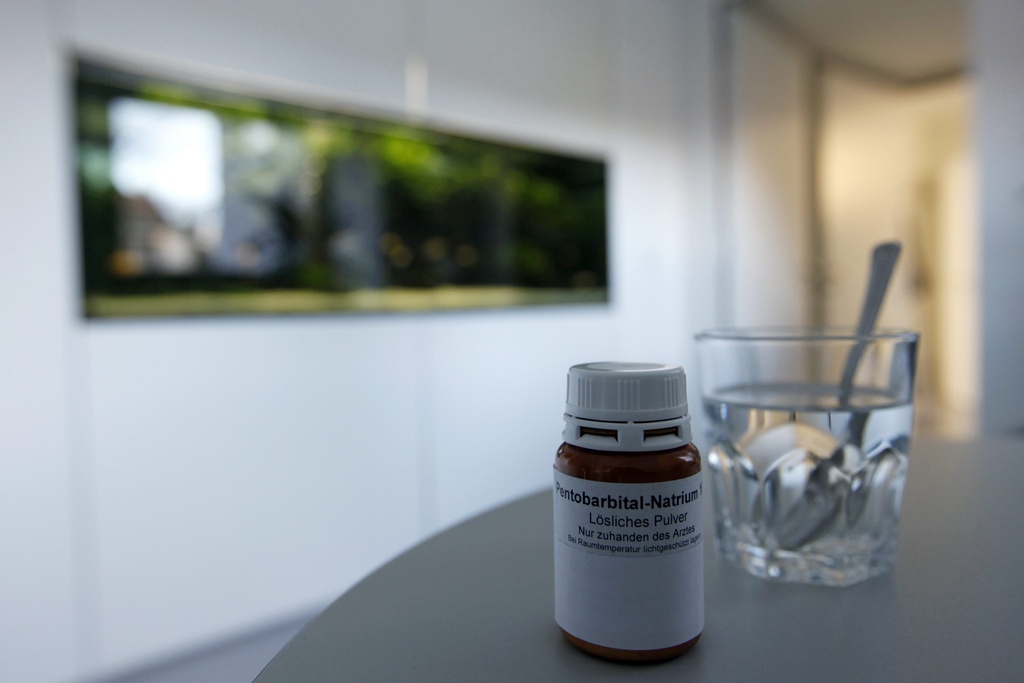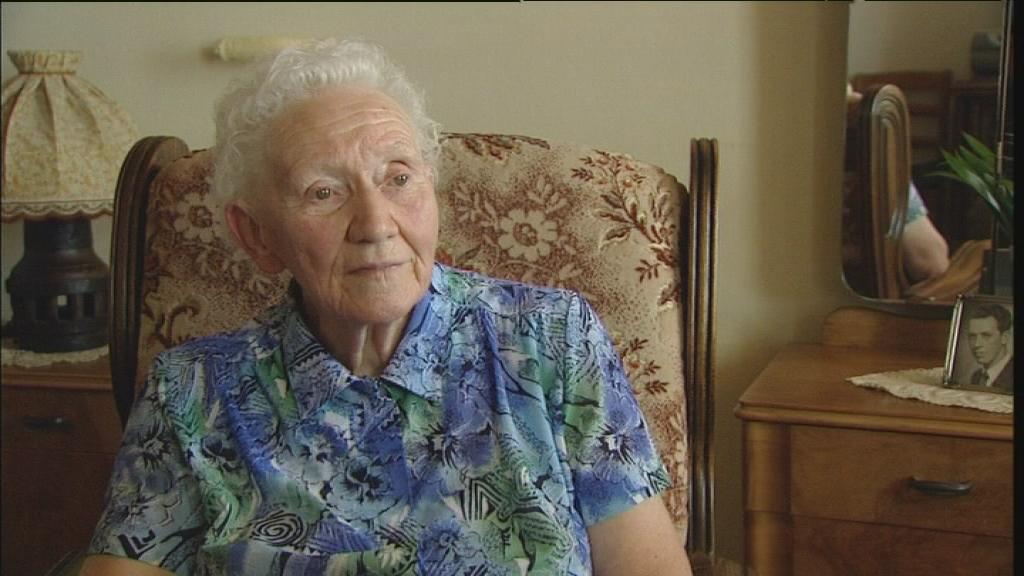Zurich set for vote on assisted suicide

Voters in Zurich are being given mixed messages about whether to allow or prevent people from being able to decide how to end their own lives.
The slogans are punchy and powerful: “Freedom at the end!” on one side against “Save life!” on the other.
They belong to opposing campaigns ahead of the cantonal vote on Sunday, when voters will have a say on two people’s initiatives: one calling for a ban on assisted suicide in Switzerland, the other for it to be restricted in Zurich.
The vote has attracted widespread attention. Not only because another vote will probably take place in 2012 in canton Vaud on assisted suicide in old people’s homes, but primarily because the federal government is due to put forward legislation on the activities of assisted suicide organisations.
Swiss law tolerates assisted suicide when patients commit the act themselves and helpers have no vested interest in their death. But since the 1990s pressure has grown on politicians following various scandals involving the deaths of mentally ill patients and so-called “suicide tourists”.
Symbolic value
Christoph Blocher, justice minister from 2004-2007 and a member of the rightwing Swiss People’s Party, didn’t want to change the status quo. His successor Eveline Widmer-Schlumpf from the centre-right Conservative Democratic Party wanted to ban assisted suicide but nothing happened.
The ball is currently in the court of Simonetta Sommaruga, from the centre-left Social Democratic Party, who has promised a new bill “in the first half of 2011”.
This explains the high symbolic value of the Zurich vote. No one is giving either vote a chance of passing – they are judged almost impossible to apply because they violate the principle of non-discrimination between citizens.
But Bernhard Sutter, spokesman for assisted suicide organisation Exit in the German-speaking part of the country, is hoping for a clear result “to send Simonetta Sommaruga a strong signal”.
Sommaruga has indicated she wishes to include questions of suicide prevention and palliative care in her response.
Religious view
The parties seeking to ban assisted suicide in canton Zurich are the Christian-based Evangelical People’s Party and the Federal Democratic Union.
“Assisted suicide is the fruit of egoism and a growing lack of piety. All thanks to 1968…” Michael Welz from the Federal Democratic Union told Zurich cantonal parliament.
The advocates of the ban believe palliative care is the best option to take care of seriously ill people at the end of their lives.
They also believe that assisted suicide damages Zurich’s image, not to mention the cost to the taxpayer of SFr3,000-5,000 ($3,400-5,700) per case for the legal medical tests.
“Those who take their own life do not die in dignity but in moral distress and despair,” they claim.
Self-determination
Supporters of assisted suicide, regularly backed by 70-80 per cent of Swiss voters, insist on the right to self-determination. However, a majority reject suicide tourism: when foreigners travel to Switzerland to end their lives.
Exit and Dignitas, the two biggest assisted suicide organisations in Switzerland, are not working together on a campaign, but they both warn against banning assisted suicide or creating insurmountable obstacles to getting a doctor’s approval.
“Without assisted suicide, more and more people will try to kill themselves in a violent manner – by throwing themselves under a train or off a bridge,” they argue.
According to a German study by Althaus & Ringel, published in 2007, 30 per cent of the 12,000 suicides committed each year in Germany are by people suffering from several illnesses. Also some ten per cent of falls or car accidents involving old people are thought to be intentional.
These results were published in Exit’s report 4/2010, which also features an article by Canadian sociologist Russel D Ogden, who considers the current Swiss model one of the best in the world.
“Every case of assisted suicide is subject to an official enquiry and can be documented,” he said.
Increasing demand
But he fears that if the government introduces greater obstacles to gaining access to assisted suicide, “it will lose the control that it is looking to obtain. As a result, people will observe the precautionary criteria less than the specialist organisations do today”.
Ogden points to the increasing use of helium in suicides in countries that ban assisted suicide, such as Germany.
Dignitas, which helps around 100 people end their lives a year (a third less than before 2008 and the introduction of the obligation in Zurich to consult a doctor twice instead of once), resorted to helium four times in 2008 but has not used it since. Exit says it has never used gas.
The desire of an aging population to be able to make its own decisions when it comes to dying appears to be getting bigger: in 2010, some 4,000 people joined Exit, which had a total of 70,000 members in April 2011 – the biggest annual increase in its history.
Swiss law tolerates assisted suicide when patients commit the act themselves and helpers have no vested interest in their death. Assisted suicide has been allowed in the country since the 1940s.
Assisted suicide is when a doctor provides a patient with the means to end his own life; however, a doctor does not administer the lethal substance.
Death is usually induced through a lethal dose of barbiturates that has been prescribed by a doctor. Ingestion of the poison, whether by drinking it or through the use of intravenous drips or stomach tubes, must be carried out by the person wanting to die.
A 2006 judgement by the Swiss Federal Court ruled that all people of sound judgement, irrespective of whether they suffer from a mental illness, have the right to decide the manner of their death.
A new proposal to amend the penal code to regulate assisted suicide practises is expected to be presented for consultation in June, but any plan is unlikely to be put before the parliament before mid-2012.
Switzerland has two main groups which cater to people who seek an assisted suicide, Exit and Dignitas.
Switzerland: Assisted suicide and passive euthanasia (“mercy killing”) is legal. Active euthanasia is illegal, but an exception can be made for indirect active euthanasia.
Germany and Italy: Assisted suicide is illegal.
France: A 2005 law allows doctors to withhold treatment with a terminally ill patient’s consent in certain circumstances. Active euthanasia remains illegal.
Netherlands: permits voluntary euthanasia and physician-assisted suicide.
Britain: has the strictest regulations against assisted suicide in Europe. Many Britons come to Switzerland to die.
(Translated from French by Thomas Stephens)

In compliance with the JTI standards
More: SWI swissinfo.ch certified by the Journalism Trust Initiative




You can find an overview of ongoing debates with our journalists here. Please join us!
If you want to start a conversation about a topic raised in this article or want to report factual errors, email us at english@swissinfo.ch.